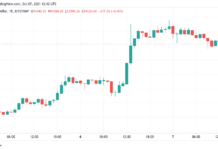During a recent budget hearing, Securities and Exchange Commission Chair Gary Gensler mentioned that final approvals for exchange-traded funds (ETFs) trading Ethereum’s ether (ETH) are expected to be completed by this summer. He stated that the initial approval for a group of ETFs has already been granted, and the remaining registration details are currently being processed at the staff level.
Once the necessary filings, known as S-1s, are approved, these new ETFs will be listed, allowing easier access to trade funds that hold actual ether. This development mirrors the earlier establishment of bitcoin spot ETFs, which hold bitcoin (BTC). Gensler highlighted that the SEC had initially opposed bitcoin ETFs until a federal court intervened, prompting the agency to align with the court’s decision and permit their establishment.
When questioned directly about whether ETH should be classified as a commodity, Gensler refrained from providing a clear answer, maintaining the SEC’s ambiguous stance on the matter. In contrast, Commodity Futures Trading Commission (CFTC) Chair Rostin Behnam affirmed that ETH is indeed a commodity. This distinction is crucial in determining the regulatory oversight applicable to different tokens, with the SEC overseeing securities tokens and the CFTC governing the rest.
Gensler emphasized the importance of compliance within the crypto industry, noting that many tokens remain unregistered and in violation of securities laws. While he acknowledged that not all crypto assets are classified as securities, he reiterated the obligation for those falling under the SEC’s jurisdiction to disclose relevant information to the public.
In discussing the regulatory landscape, Gensler expressed concerns about the industry’s defiance of rules and suggested that the CFTC may not be fully equipped to supervise a disclosure-based oversight system, unlike the SEC. Behnam echoed these sentiments, highlighting the need for additional regulatory tools and resources to effectively monitor crypto markets.
Behnam also addressed the issue of prediction markets, particularly contracts related to election outcomes, stating that the CFTC has taken steps to prohibit such contracts. He emphasized the importance of upholding existing laws and preventing the commercialization of elections through these markets.
Overall, the statements from Gensler and Behnam underscore the evolving regulatory environment surrounding cryptocurrencies and digital assets. As the approval process for ether ETFs progresses, regulatory bodies are working to establish clear guidelines and enforcement mechanisms to ensure market integrity and investor protection.














